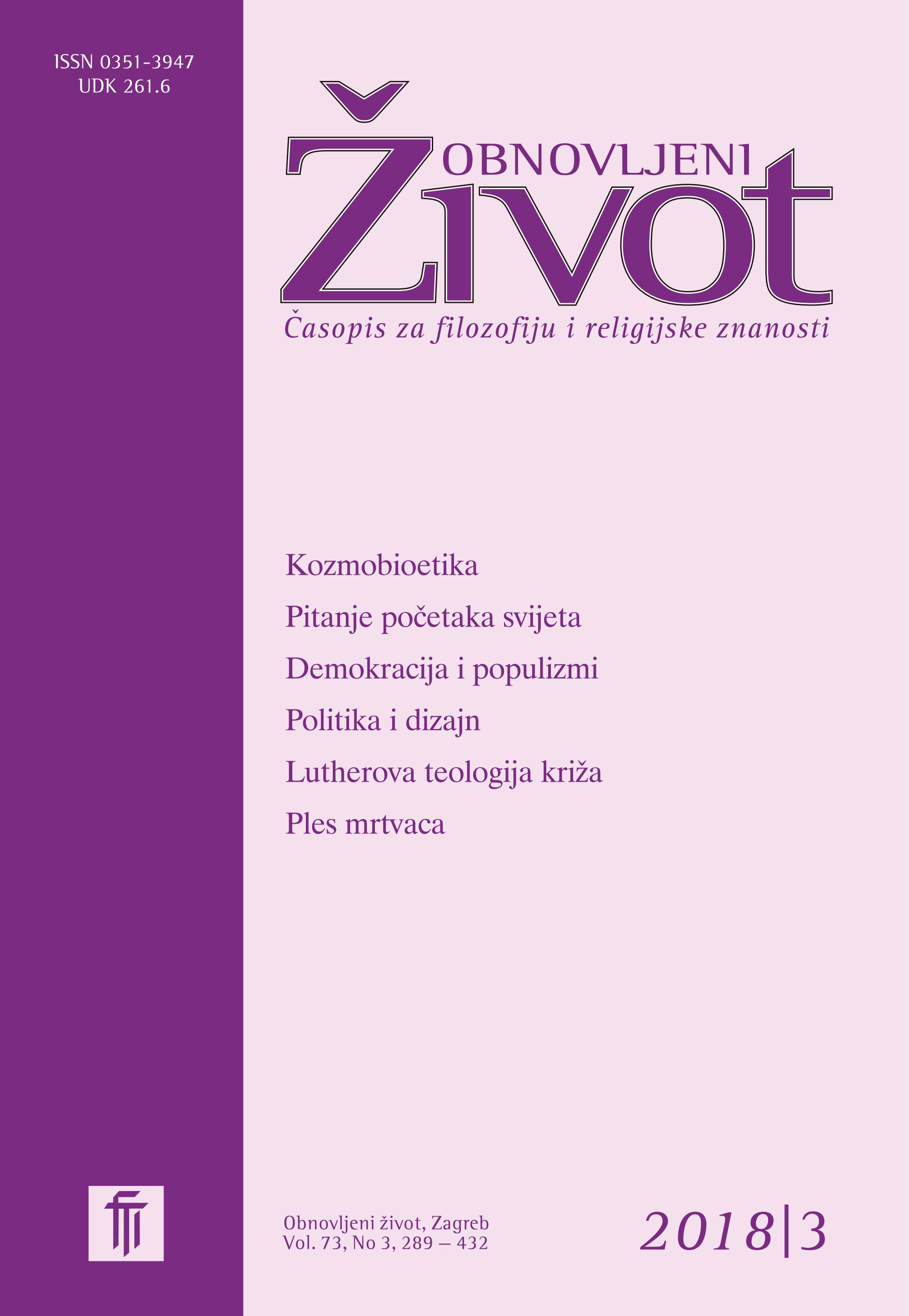The Question of Origins of the World — The Philosophy of Science and Aquinas’ Epistemological Caution
Keywords:
Thomas Aquinas, eternity of the world, creation, metaphysical origin, natural origin, Big Bang, philosophy of science, epistemological cautionAbstract
This research was inspired by Tomo Vereš through an article of his titled Thomas Aquinas — Forerunner of Nicolaus Copernicus? Aquinas’ commentary on Aristotle’s works, especially regarding On Heaven, On the Eternity of the World, and also a series of questions from the first part of the Summa Theologiae (I. q. 32, q. 45 — q. 49) containing the passages addressed by Vereš. These are at the very core of the old discussion on origins which includes the question of the eternity of the world, the examination of the concept of creation and significant philosophical themes, such as the question of time, the limits of knowledge, and the relationship between philosophy, science and theology. Questions on origins are today extremely topical, especially in the context of modern cosmology from which the Big Bang theory comes as well as various models of the universe, multiverse proposals, etc. A correct understanding of these topics is extremely important for science, philosophy and theology and for the dialogue between them. In this regard, we have highlighted multiple fragments of Aquinas’ which are crucial for contemporary science in terms of a scientific preservation of so–called epistemological caution. Aquinas’ epistemological caution is manifested especially in his differentiation of the change that takes place in time and creation which is a temporal act, that is to say, in the differentiation of the concepts of theological creation, metaphysical origin and natural origin. Specifically, Aquinas’ distinctions in the context of contemporary cosmological ideas (models), particularly of the Big Bang, indicate that unsophisticated thought leads us into traps, especially that of the so–called „God of Gaps“ and of Scientism. These traps can be avoided through epistemological caution. Thus, Aquinas proved himself to be a great philosopher of science and at the same time anticipated many important topics in the contemporary philosophy of science, e.g. the question of models. He warned of the necessity for an autonomy of science, philosophy, and theology, and thus, by apprehending the identity of his own discipline and by accepting and recognizing its limits, he opened the space for dialogue, this being the only way to avoid traps on the path to the realization of scientificality. Thus, Aquinas has left us a valid way of apprehending truth and a multitude of topics to be more thoroughly explored in the light of his thought. Finally, since this research was inspired by an article by T. Vereš, perhaps some of these thoughts will inspire new research as well as a discovery of the light of truth to which Aquinas himself has pointed our attention.
Published
Issue
Section
License
Jednom prihvaćeni članak obvezuje autora da ga ne smije objaviti drugdje bez dozvole uredništva, a i tada samo uz bilješku da je objavljen prvi put u Obnovljenom životu. Uredništvo će obavijestiti autora o prihvaćanju ili neprihvaćanju članka za objavljivanje.
Članci objavljeni u časopisu se, uz prikladno navođenje izvora, smiju besplatno koristiti u obrazovne i druge nekomercijalne svrhe.


